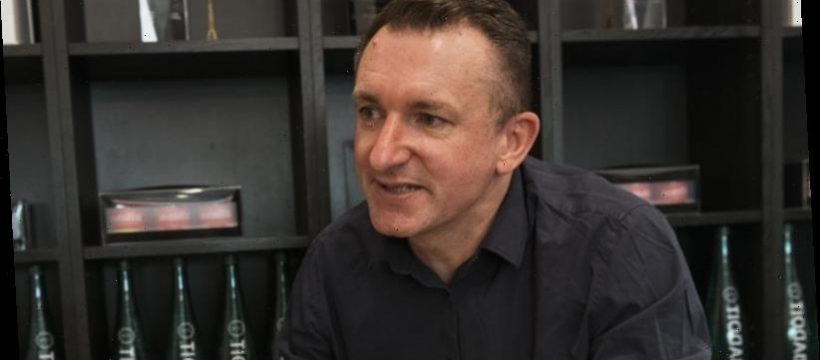Carriageworks, the cultural centre in the historic Eveleigh rail yards, has stood down core staff and casuals and frozen all non-essential work as it urgently reorganises to survive the coronavirus lockdown.
Operation of the Sydney arts precinct has come under "extreme pressure" following the cancellation or postponement of six months of events and programs due to the government-enforced ban on public gatherings.
Carriageworks CEO Blair French.Credit:James Brickwood
Carriageworks lost the Sydney Writers' Festival, Mercedes-Benz Fashion Week Australia, the design event Semi Permanent, part of the Vivid program, and its weekly Farmers Market to the pandemic.
With the precinct deriving between 70 and 75 per cent of its income from commercial activities, chief executive officer Blair French gave notice to staff of the stand down on April 9, "effective immediately".
"It is not possible for the company to continue business as usual," Mr French said in a letter to staff. "The result has been a significant reduction in our revenue stream. Consequently, our cost base must be urgently reduced."
A total of 19 core employees will be without work for a minimum of four months. The executive team and remaining full-time staff, amounting to 23 people, have shifted to a three-day week. Carriageworks is relying on the $1500 fortnightly JobKeeper wage subsidy to underwrite the employment of its regular long-term casuals, comprising artists and contractors.
The "sudden and severe" reversal in Carriageworks' income base has highlighted the parlous state of the Sydney arts sector, which Create NSW said contributed $16.4 billion to the NSW economy in 2018.
Despite signs of financial distress, the Berejiklian government has yet to announce targeted assistance to help companies overcome cash flow and revenue shortfalls.
Opera Australia has flagged the sale of one or both of its properties in Surry Hills and Alexandria to stave off the threat of bankruptcy caused by the COVID-19 crisis. Sydney Symphony Orchestra, already struggling with potential multimillion-dollar losses due to its temporary relocation from the Opera House Concert Hall, said it was trying to find ways through the crisis, including new working arrangements for its out-of-work musicians.
Live Performance Australia president Richard Evans, who is managing director of the Australian Chamber Orchestra, said cash flow was a huge problem for a number of well-known performing arts companies and fears adverse impacts will last well into 2021.
"Certainly, there are some companies that have immediate and critical cash flow concerns in the immediate months," Evans said. "The emerging issue is whether those large subscription-based organisations have surety into 2021.
"For more commercial organisations [the question is] at what level would commercial and philanthropic revenues return? While 2020 is an issue with the absence of performances, the 2021 season, with a significant reduction in box office on top of depleted reserves from 2020, will be a major issue."
Carriageworks’ weekend Farmers Market, has been cancelled for the time being.
In 2018 Carriageworks posted a deficit of $559,236, but its board expressed confidence that the venue could proceed as an "ongoing concern" given it had secured an annual grant of $2.5 million from Create NSW until 2021, as well as taking into account its high revenues from commercial operations.
In that year it received $1.5 million from the box office, $1.1 million from food programs and markets, and $3.9 million from commercial events.
Mr French said Carriageworks had been buoyed by its success in securing long-term funding from the Australia Council for the Arts in its latest competitive funding round.
Yesterday, the arts hub launched an online program created around the major new installation Cinopticon, by Australian artist Giselle Stanborough.
New online content, including an interactive art wall, curatorial essays and Stanborough's new video work, is being released through its platform, Carriageworks Journal.
Source: Read Full Article


